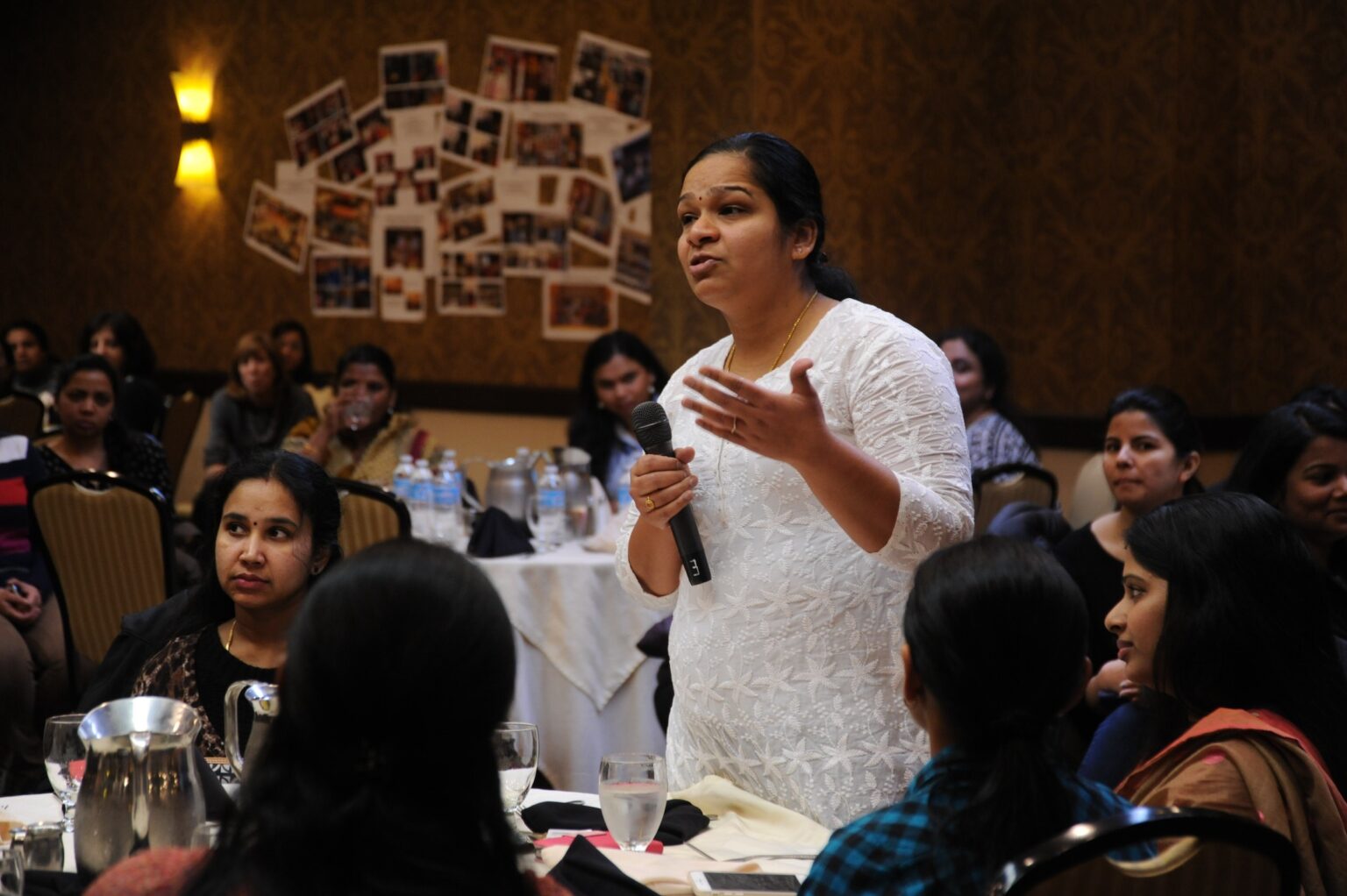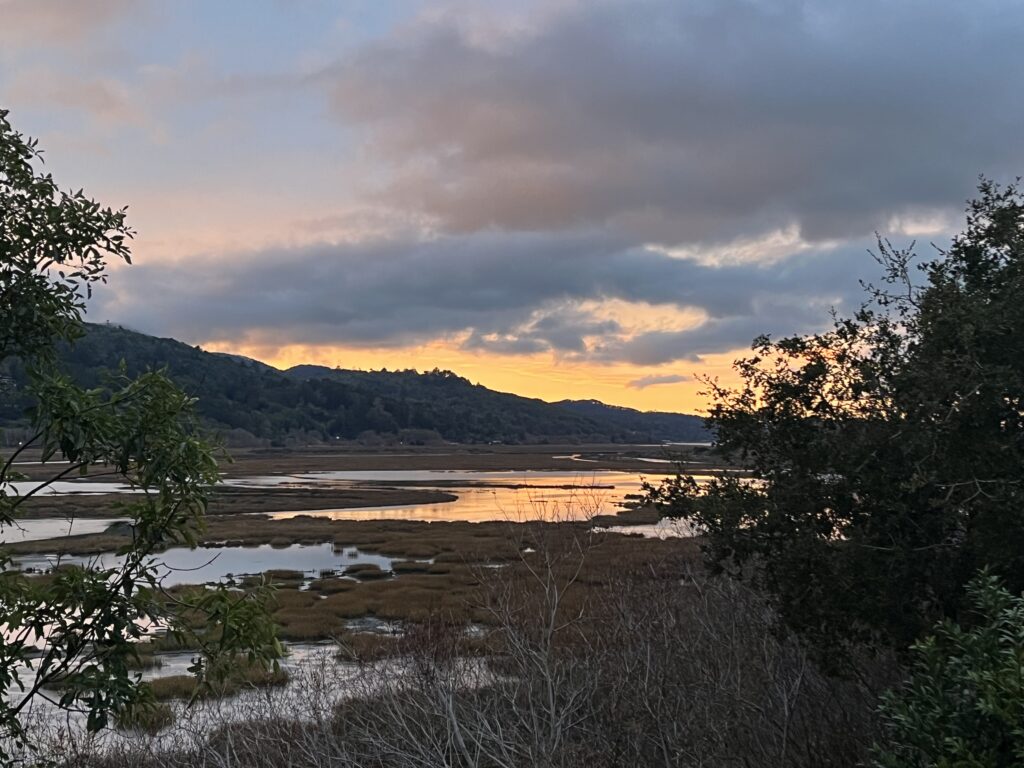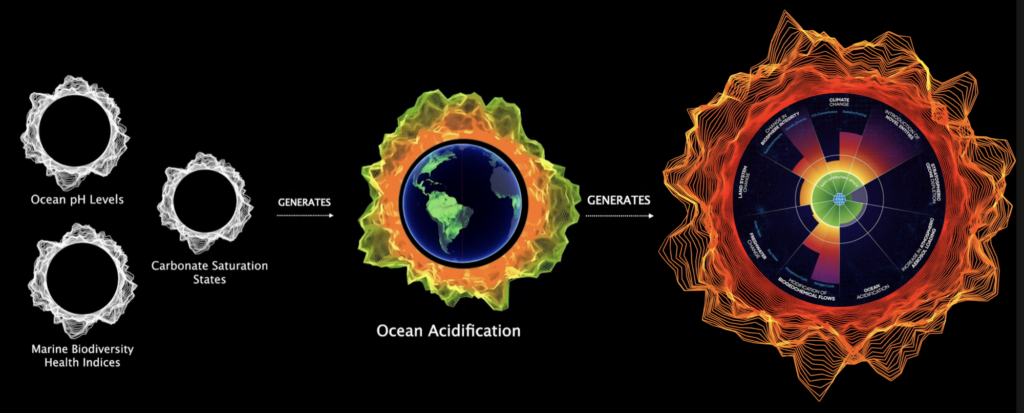It’s the biggest issue of our time. So why are so few of us talking about it?
In the UK, 57 percent of us talk about climate with friends and family infrequently, rarely, or never.
In the U.S., it’s even starker, with 67 percent ‘rarely’ or ‘never’ discussing climate change.
Maybe we’re worried about ruining a conversation with such a depressing issue. Maybe we don’t see the issue as urgent, or believe we have the power to change things. Maybe we simply feel overwhelmed at the scale of the challenge.
Whatever the reason, the silence around climate change matters.
For one thing, conversations with friends and family have a big impact on elections. Political scientists point to “mountains of evidence” that “by far the most effective way to turn out voters is with high-quality, face-to-face conversations.”
Conversations shape values, too — both our own and other people’s. The single biggest factor in the seismic shift in U.S. attitudes towards equal marriage was people talking to gay friends or family members.
So there are good reasons to think that the more we can break the silence on climate change, the more we’ll be able to open up and protect the vital political space needed to sustain transformational action.
The journey to net zero will touch every aspect of our lives, after all: how we work, what we eat, the homes we live in, how we get around, and the nature of the cities and countryside that surround us.
And throughout that journey, we need to sustain public support. Not just for one news or election cycle but for decades while this transformation unfolds.
Yet too often we fall into the trap of only engaging our political base: the 15-20 percent of people who already agree with us.
If we’re serious about transformation, we need to do much more to engage people who are outside the environmental movement’s usual base: the 60-70 percent of people who are neither climate activists nor climate deniers (sometimes called ‘Persuadables’).
Them-And-Us
In the process, we need to focus on engaging much more with communities that we’ve historically done less well at reaching — like working class people; people of colour; or right-of-centre voters.
Because it’s in the hearts and minds of ‘Persuadables’ that the fight to stop climate breakdown will be won or lost. Climate change is, after all, “far too large to be solved without a near-total commitment across society,” as Climate Outreach founder George Marshall puts it.
It’s also crucial that we defuse them-and-us dynamics on climate.
Hard-right populists such as Nigel Farage in the UK, or Alternative für Deutschland in Germany, are doing all they can to provoke a culture war on net zero. With worse to come on the cost of living crisis and some climate activists themselves keen to polarise the issue — there’s a risk they could yet succeed.
That would be a disaster.
Look at the U.S., where extreme polarisation on the issue has led to decades of flip-flopping, with 180 degree reversals on major climate policy every time a new administration enters office.
So how can we engage the Persuadables while defusing the risk of climate polarisation?
Conversations.
Over the last decade, more and more real world examples have shown the raw power of authentic, empathic conversations to unleash deep change.
In California, LGBTQ activists have pioneered ‘deep canvassing’: using doorstep conversations based around listening, respect and open-ended questions to change even committed opponents’ minds on issues like trans rights or equal marriage.
In Ireland, conversations helped avoid Brexit-style polarisation during the country’s 2018 referendum on abortion, and instead brought the country together around a new settlement.
And in Turkey, the moderate CHP party used conversations and unifying stories to head off a populist, culture war campaign by President Tayyip Erdogan’s AKP party during the 2019 Istanbul mayoral election — and won a landslide.
‘Circles Of Compassion’
There’s a growing number of examples on climate change, too.
Like the thousands of school strikers who changed their own parents’ minds on climate change — with the biggest impacts seen on white conservative fathers.
Or the Australian hairdressers who are training in how to use conversations with their clients to inspire climate action.
Yet these are still the exceptions rather than the rule: For the most part, climate activists still don’t see conversations as a core part of what we do.
We invite people to eat less meat, give us money, stop flying, sign our petitions, join protests, or even get arrested.
But all too often, we overlook what might be the most effective, easy and human action of all: getting us to talk about the climate.
So what might happen if we changed that?
We’ve been wondering about this a lot at Larger Us — a nonprofit that explores how we can use psychology to build broader coalitions, bridge political divides, and expand what Einstein called our ‘circles of compassion’.
What if advocacy organisations, and movements with mass memberships, trained up their members and volunteers to start creative conversations, including with people who have different values — conversations based, like deep canvassing, on listening, respect, generosity and curiosity?
We don’t know — but we want to find out.
So over the coming months, we’ll be teaming up with a range of membership organisations — not just environmental groups, but also trade unions, faith groups, companies and cultural institutions — to test the idea.
Our hunch is that millions of people are looking for a different kind of climate activism.
The kind of activism that gives us a sense of agency and hope rather than helplessness and doom; that welcomes in rather than calling out; and that builds the connection and joy that so many of us yearn for.
Want to stay in touch with what we learn, or maybe even get involved? Drop us a line — we’d love to hear from you.
The authors work at Larger Us, a nonprofit that draws on psychological research to support campaigns that bring people together and build broader coalitions.
Subscribe to our newsletter
Stay up to date with DeSmog news and alerts







